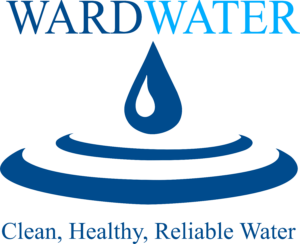Dogs and Water | Is your dog drinking enough water?
Dogs and water dehydration have a lot in common with people when it comes to healthy living. If your dog isn’t getting enough water he/she can experience a long list of mental and physical problems. Lethargy, depression, joint pain and even serious internal organ issues can occur if they aren’t getting enough daily water.
Knowing the symptoms ahead of time can make all the difference in the world for maintaining proper health for your beloved four-legged member of the family.
Dogs and Water | Maintaining Proper Health
According to PetMd.com maintaining proper dog health is vitally linked to how much water your dog is taking in on a daily basis.
According to their article, The Importance of Water for Dog Nutrition;
“Basically every important body function requires water and without adequate supply, your dog can become ill quickly and become dehydrated. Organs will eventually become damaged with sustained water deficiency. If the deficiency lasts long enough, organs (such as kidneys, liver, etc.) will begin to shut down…”
When you think about it, human health and dog health are really quite similar. Without enough water we simply can’t function properly. Water is the stuff we are all made of. Our proper health and even our survival depend on it.
Dogs and Water Deficiency
Monitoring dogs and water intake is pretty straightforward for most people. If you are like me, most likely, you know how much water you are putting down for your dog each day and you know approximately how much they are consuming. Quite simple.
There are plenty of other cases, however, that aren’t so cut and dried. Maybe you have
multiple dogs in you home and it’s difficult to tell which are drinking more than others. Maybe your dog spills it’s water dish regularly, making it tough to tell how much they had before spilling the bowl.
The point is, sometimes it’s not enough to just monitor your dog’s food and water dishes. Sometimes you need to pay close attention to the physical signs that tell you if your dog may be dehydrated.
Top 5 Signs your Dog might be Dehydrated
According to WebMD.com there are 5 key indicators that your dog may not be getting enough water.
Any one or combination of these symptoms could be an indicator that your dog isn’t getting enough water.
- Sunken eyes
- Lethargy
- Loss of appetite
- Dry mouth
- Depression
If you notice one or more of these symptoms, it’s probably a good idea to contact your veterinary office and get their thoughts and advise about what to do next. Speaking from personal experience, having lost our dog to complete kidney shutdown due to a deadly bacteria (Leptospirosis), I can tell you that you can never be too safe or preemptive when it comes to monitoring your dog’s health.
Tips for Avoiding Dehydration
- Make sure your dog has a fresh, clean supply of water at ALL times, especially when it’s hot or when your dog is more active. Also make sure to clean your dogs water bowl frequently to avoid bacteria.
- Pay close attention to how much your dog is drinking. A general rule of thumb is that most dogs should be consuming at least 1 ounce of water for each pound of body weight per day.
- Use a weighted or “non-slip” style water bowl to avoid tip-overs for more rambunctious dogs.
- Bring plenty of extra water for when you’re on the go with your dog.
- If you suspect your dog isn’t drinking as much as usual, check the insides of their mouth for cuts, sores or any foreign object such as sticks or pieces of toys.
- Avoid chaining your dog outside, if at all possible, especially in hotter whether.
- Keep lids closed to discourage your dog from drinking toilet water.
Our Advise as Water Treatment Professionals
Keep in mind, if there’s something out there that might make you sick, there’s a really good chance it could make your dog sick as well- especially when it comes to contaminants.
Let common sense be your guide if your water comes from a private well. Any private well is subject to harmful contaminants. If those contaminants have health risks for humans, there’s a good chance they pose just as serious a risk for a dog.
Contaminants like Arsenic, Uranium, Radon and Bacteria can be found in any home that receives it’s water from a private well. You can’t see, taste or smell any of these dangerous toxins.
If you haven’t already done so, have your water tested for health related contaminants. If you have questions about what to test for, feel free to contact our offices or email us at office@wardwater.com.





